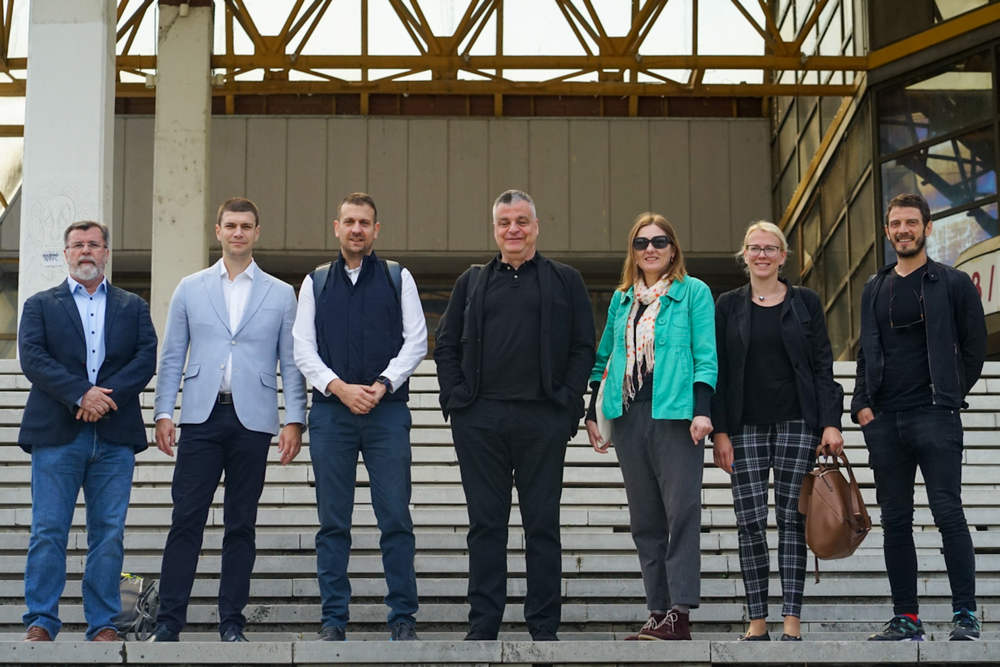
Representatives of the Permanent Working Group for Safe Journalism with media associacons representatives in front of the NDNV office in Novi Sad
The SPP informed the members of the PWG (comprising, beside the SPP representatives, the representatives of the Ministry of Interior (MoI), the three largest journalists’ associations – UNS, NUNS and NDNV, media associations ANEM and AOM, and a representative of the OSCE Mission to Serbia), that in the first half of the year, 11 cases of threats and assaults were finalized, in 4 of which convictions were rendered. This represents 26.19 per cent of the total number of cases, which is at the level of the results from the first trimester of 2023.
Compared to the same period in 2022, there is no deviation in the total number of complaints raised – there were 42 then as well. The trend has not altered significantly, bearing in mind that 83 cases were opened last year, while in 2021 there were 87.
On the other hand, in the last three years, the number of cases has visibly increased compared to the period from 2016 to 2020. In those five years, there were mostly around 60 cases per year, except for 2017, when considerably fewer cases were opened – 38.
In the first half of the year, convictions were rendered in cases of endangering the safety of Željko Matorčević, editor-in-chief of the Žig info portal, Marko Dragoslavić, journalist of the Fonet agency, Nikola Stojković and Boris Miljević from RTS and Milan Šupica from the Pančevac newspaper.
Compared to the first three months of 2023, from April to June, fewer criminal charges were dismissed – 1 (3 were dismissed in the first three months of the year).
In the second quarter, in 2 cases an official note was issued that there are no grounds to initiate criminal proceedings (1 in the first three months of the year).
From April to June, the prosecutor’s office submitted a request to collect the necessary information 17 times, significantly more than from January to March, when there were 7 such requests. This can be explained by twice as many complaints raised for assaults.
Evidence collecting procedures were conducted in three cases in the second quarter of the year, the same as in the first three months of this year.
In one case, the person who issued the threats was not identified even after the preliminary investigation procedure.
The multi-annual trend of the majority of cases being endangerment of safety by online threats continues, as referred to in Article 138 of the Criminal Code.
Data on the assaults during the first seven and a half years of the PWG
– 488 cases filed by the prosecution due to threats or assaults against journalists and media workers from 1 January 2016 to 30 June 2023.
– in 197 cases it was estimated that there were no elements of criminal offence
– in 291 cases it was estimated that there were elements of criminal offence
– in 84 cases the perpetrator was not found even after the investigation.
– in 294 cases first instance or final decisions were passed – 60.25 per cent of the total number of cases
(The final decisions also include those in which the criminal charges were rejected or an official note was made that there are no grounds to initiate the procedure)
The statistics of journalists’ associations differ to some extent
Journalists’ associations recorded a higher number of different types of assaults and pressures against journalists in the first six months, compared to the prosecutor’s office.
The Journalists’ Association of Serbia (UNS) published in its database of assaults that from January to June there were 67 cases of endangerment of journalists’ safety, one more than in the same period in 2022, but almost twice as many as in 2021.
Among other things, UNS noted that there were 20 acts of pressure on journalists, 11 physical assaults, 13 cases of work disruption, three intimidations, one assault against property and one violation of privacy.
The Independent Journalists Association of Serbia (NUNS) recorded in its database 100 assaults against journalists by 30 June this year. The structure of assaults is different from the UNS records: 6 physical assaults, no assaults against property, but 25 verbal threats and as many as 69 pressures.
The difference in the number of recorded „assaults against journalists“ by associations and by the Supreme Public Prosecutor’s Office comes from the fact that not all assaults are reported to the prosecutor’s office, but also from the fact that the associations also counts pressure on journalists as assault, which the prosecutor’s office does not process because they are not criminal acts according to Serbia’s Criminal Code.
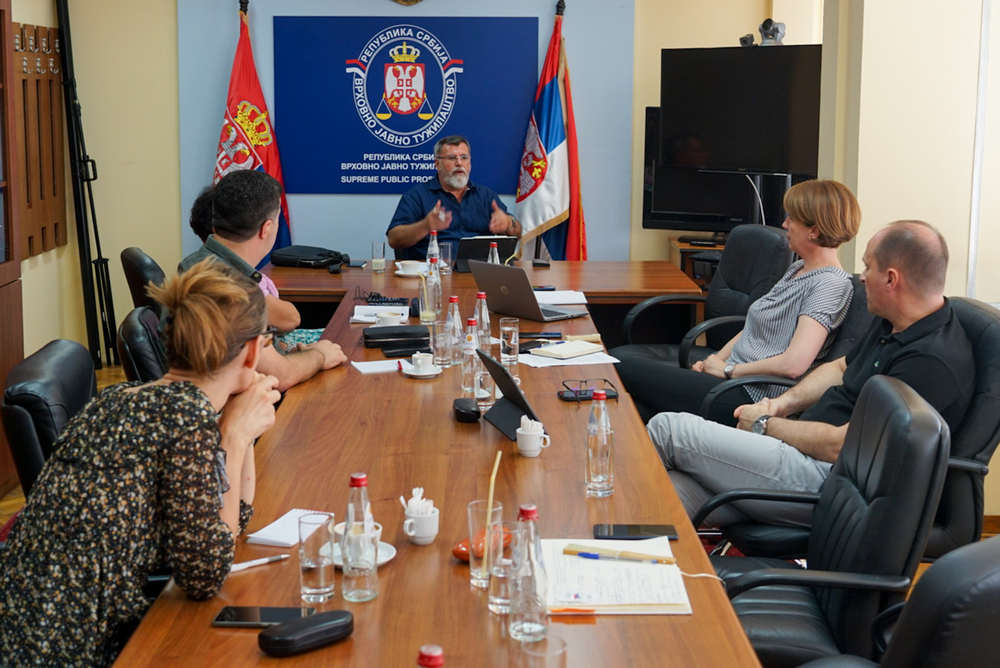
Veran Matić at a Permanent Working Group meeting
Drastic and repeated threats to journalists’ safety
At the regular quarterly meetings, held in March and June, the PWG discussed in detail some drastic cases of threats and assaults against journalists and media outlets.
The security assessment for Brankica Stanković, the editor-in-chief of Insajder TV, was also discussed, after insults and threats from the Partizan fans during a basketball game. This journalist had a police escort for many years after the hooligans chanted „you are poisonous like a snake; you will end up like Ćuruvija“ in 2009.
They also discussed numerous threats to the co-author of the show „Good, Bad, Evil“ Nenad Kulačin, which he received during May. The prosecution opened three cases at that time (one together with the other co-author of the show, Marko Vidojković). In all these cases, Mr. Kulačin was interviewed and requests were submitted to collect information, while in one case a proposal was submitted to the Higher Court in Belgrade to locate the place from which the communication was performed.
The case of KRIK editor-in-chief Stevan Dojčinović and the manager of that research portal, Jelena Vasić, for being followed was also one of the topics discussed by the PWG. In this case, the prosecution has acted promptly and submitted a request to collect information.
With regard to the repeated threats of violence addressed by Simo Spasić to the journalist Ivan Ivanović and his family, a criminal complaint was filed and the defendant was ordered to be detained, while the finding of a psychiatrist expert witness was provided.
In the case of threats addressed to the editorial office of Blic, the First Basic Public Prosecutor’s Office in Belgrade reached a plea bargain agreement with the suspect, who would be sentenced to house arrest. However, the court rejected that agreement. The prosecution continued to gather evidence.
The persons who threatened the editorial office of the daily newspaper Danas last year, as well as the journalist Dragojlo Blagojević (Drvotehnika), have not yet been identified. Namely, there was no progress in the investigation through international legal aid, so the perpetrators have not yet been identified.
In the last three months, three cases were opened due to threats to journalists of the daily Danas. Journalists Ivana Šundić Mihailović and Nina Čolić were interviewed and requests were submitted to collect the necessary information. Requests were also submitted in the case that was opened due to threats to journalist Nikola Krstić.
The PWG is also regularly informed about the events in Vranje, where an entire case file disappeared in the Higher Court after the verdict against Dejan Nikolić Kantar. This casino owner repeatedly threatened journalists, media outlets, and even members of the PWG in the courtroom, during the trial for endangering the safety of the OK Radio employees. Members of the PWG are intensively monitoring this case, as well as the process of determining the responsibility for the disappearance of the case file in the court.
At the last meeting of the PWG on 25 July, the forthcoming final verdict for the murder of journalist Slavko Ćuruvija was also discussed, as well as the concerns of the domestic and international media public regarding certain media coverage about how that proceeding will be finalized.
The PWG emphasized that the outcome of this trial will have a huge impact on the media freedom, safety of media workers and all processes related to the ongoing media reforms. In view of this, the PWG expects a credible verdict based on the established facts, which will constitute an additional impetus to the advancement of the rule of law in Serbia.
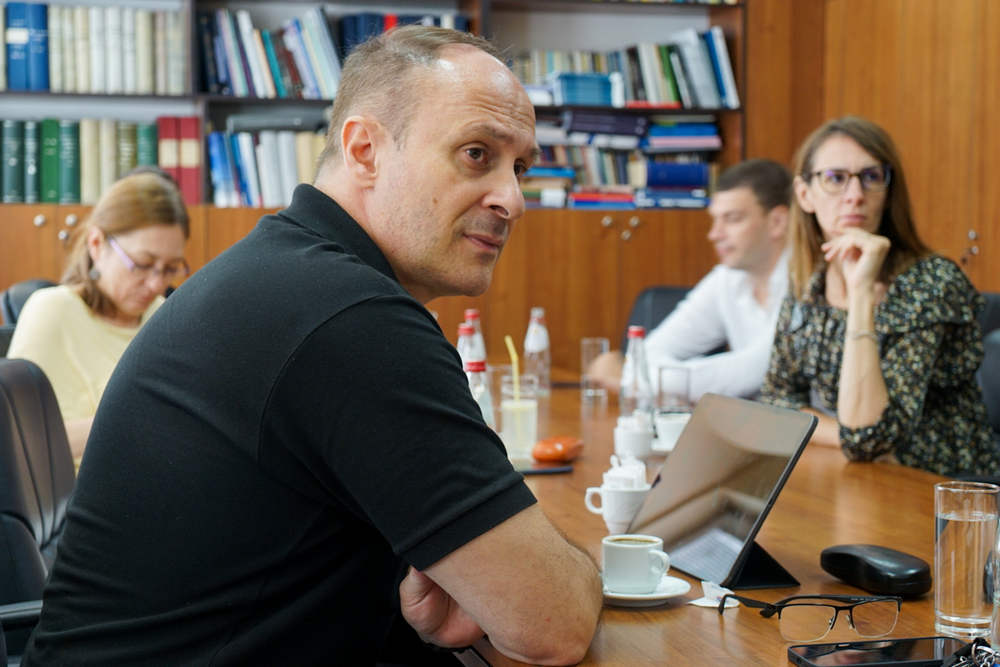
PWM meeting in Belgrade – Nataša Jovanović (Slavko Ćuruvija Foundation, Online Media Associacon), Branko Stamenković (Supreme Public Prosecutor’s Office) and Veljko Milić (NDNV)
The PWG with journalists and representatives of the prosecutor’s office and police in Novi Sad
After visits to Vranje in June 2022 and Niš in April 2023, the PWG members continued to visit cities in Serbia. Atthe end of May, the PWG held meetings in Novi Sad with journalists who were the target of assaults and threats, as well as the representatives of the local police and prosecutor’s office.
The goal was to familiarize them with the work of the Group, but also with the system of quick reporting and processing of threats to the safety of journalists through local „contact points“, which was established at the national level.
The members of the PWG pointed out that they wish to transpose the understanding that exists within the Group to the local communities as well. Once again, they urged the journalists to report each case and to actively participate in the subsequent procedure and take an interest in communication with the contact points.
Lawyer Veljko Milić, a member of the PWG from NDNV, emphasized at the time that there are still drastic cases of endangering the safety of journalists in which the perpetrators have not been discovered, and among those with the largest number of drastic threats he singled out a journalist and professor from Novi Sad, Dinko Gruhonjić.
Mr. Gruhonjić said that he regularly reports all threats he receives. Most of the threats have not yet been resolved judicially, but he also cited a case in which the perpetrator pleaded guilty and settled with the prosecution. However, the case of the worst threats he experienced – when the entrance to the building where he lives with his family was covered with threatening messages – was not solved, as the perpetrators were not discovered.
The PWG member Veran Matić added that journalists like Gruhonjić are attacked in waves, in an organized and continuous manner.
At the meeting in Novi Sad, the prosecutor’s office representatives noted that their work is quite hindered when it comes to threats on the Internet, since the collection of evidence from social networks also depends on the companies behind Facebook, Twitter or Google, which have no obligation to provide the information that prosecutor’s offices are requesting.
Those who threaten journalists often delete their profiles and thus forestall the investigation, while there are countrieswhich interpret the threats as freedom of expression.
Even the work of internet providers in relation to the IT „multi-addresses“ does not help the prosecution or the detection of those who threaten online.
Nataša Jovanović, a member of the PWG for the Slavko Ćuruvija Foundation, tackled the communication between journalists and prosecutors, noting that journalists are not informed when the prosecution strikes an agreement with the perpetrator under the principle of opportunity.
Gorica Nikolin, 021.rs portal journalist, spoke about the threats she received in 2019. She reported them, but both cases ended with the dismissal of the criminal charges, causing her discontent with certain actions of the Basic Public Prosecutor’s Office in Novi Sad. That is why she did not lodge an objection after the second dismissal of the criminal charges.
Ms. Nikolin emphasized that it is important for the media outlets to report on cases of threats to journalists and to warn about the consequences for journalists and journalism, especially in local communities.
Cases of assaults against journalists Nedim Sejdinović and Vladimir Šper, as well as against the Green Patrol team – for which an unidentified person is charged – were pointed out. The prosecutor’s office responded that cases in which the perpetrator is unidentified are open until the statute of limitations expires, in order to give the police time to find new evidence.
Journalist Boris Varga is one of many with a dilemma whether they were being threatened or insulted, and he spoke to the PWG representatives about it at the meeting. That is why he did not report those who sent him such messages via the networks, but he thinks that the perpetrators should be prosecuted so that silence does not inspire new cases of threats.
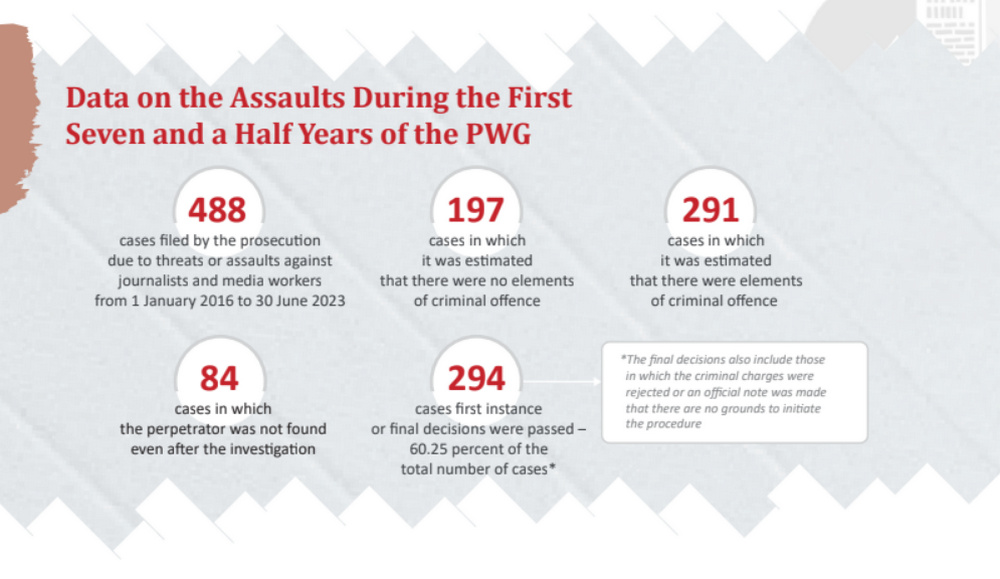
Call of the PWG to provide safety for journalists at public gatherings
In the past period, the PWG has established a new practice of addressing the organizers and participants before public gatherings in order to emphasize the importance of unobstructed work of journalists, camera operators and photojournalists.
In its first address, the PWG appealed to the organizers and participants of public gatherings to enable unobstructed and safe work of journalists and media workers, but also to the journalists and camera operators to comply with professional standards and Serbian Journalists’ Code of Ethics during their reporting.
„Uniformed policemen and those who take care of the safety of the participants of the gatherings without visible markers, in civilian clothes, are responsible for enabling safe work of journalists and media workers, provide necessary information and cooperate so that the movement of journalists and their teams is unhindered. Journalists and media workers are obliged to follow the police instructions issued in case of extraordinary events,“ the announcement states.
The PWG emphasized that if a journalist or other media worker is attacked in connection with the performance of their work, the prosecutor’s office has the obligation to initiate an emergency procedure within 48 hours, in order to identify the perpetrators and bring them to court.








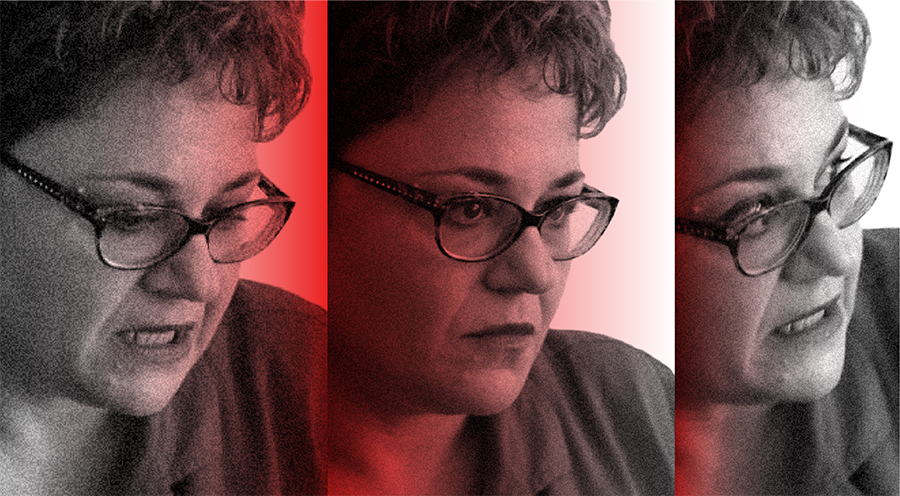 O etici i drugim demonima: Dosta više o Kosti K!
O etici i drugim demonima: Dosta više o Kosti K! Asanž pred poslednjom žalbom: Odluka sudije koja će imati ogroman uticaj na novinarstvo u svetu
Asanž pred poslednjom žalbom: Odluka sudije koja će imati ogroman uticaj na novinarstvo u svetu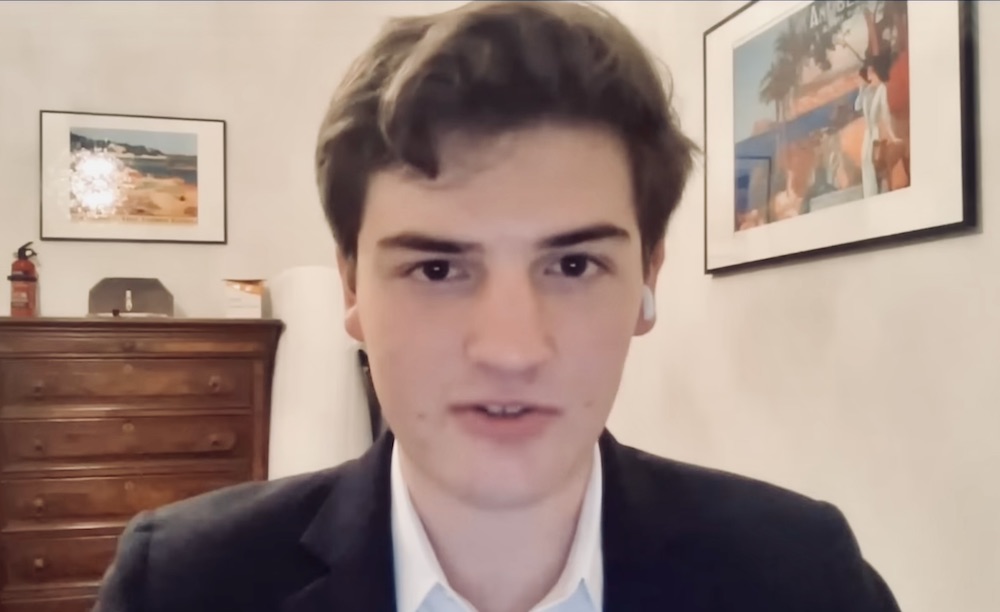 Predsednik Stenforda podnosi ostavku pošto je brucoš u studentskom listu objavio dokaze o nedostacima njegovih istraživanja
Predsednik Stenforda podnosi ostavku pošto je brucoš u studentskom listu objavio dokaze o nedostacima njegovih istraživanja
Ostavljanje komentara je privremeno obustavljeno iz tehničkih razloga. Hvala na razumevanju.